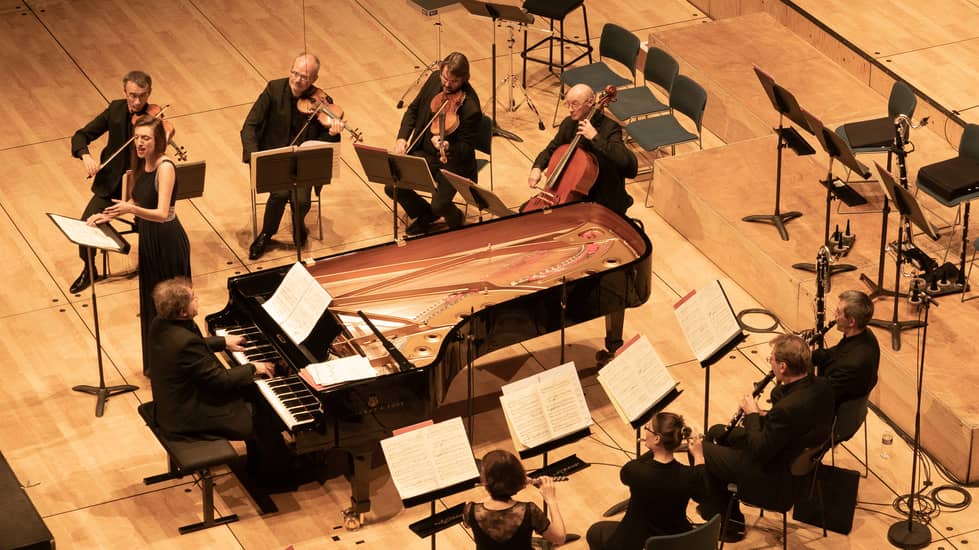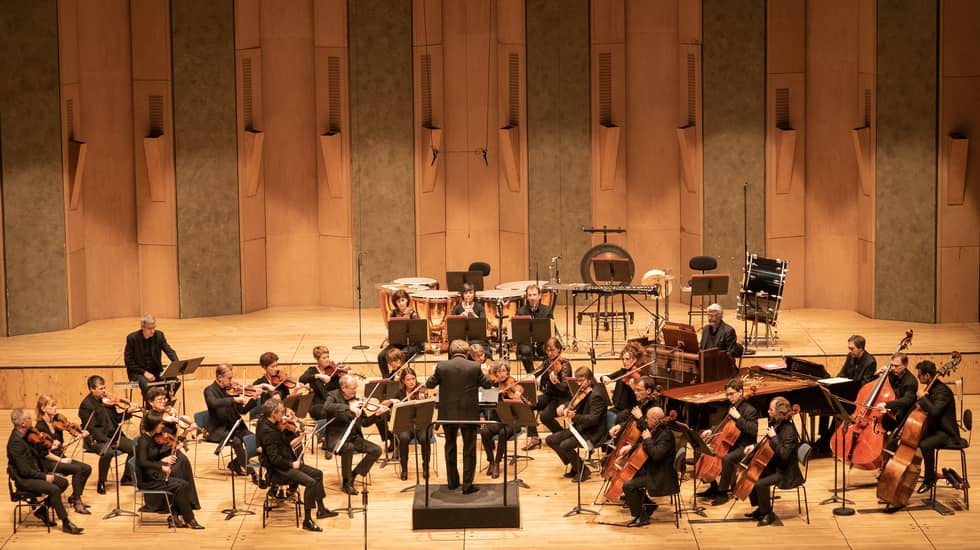
Vienne-Paris with the Philharmonie de Paris
04/12/2018 - Classic Agenda - Irène Mejia Buttin
In a few words, the conductor Jean-François Heisser situates the initiative behind this programme. In the context of his Society for Private Musical Performances founded in 1918, Schoenberg advocated the discovery of the contemporary repertoire by proposing an innovative approach whereby the audience was invited not only to attend the concerts but also the rehearsals, thus allowing a deeper immersion into music as yet neglected by the general public. This is the moment when, among other things, the works on this evening’s programme are presented.
But our speaker invites us this time to listen analytically, changing Schoenberg’s words which, in the context of his concerts, did not welcome critics and the press… Although we can write and think freely this evening, it is difficult to do other than congratulate the brilliance of the performers. Especially when we discover the two young singers Victoire Bunel and Clarisse Dalles. One, sober and gracious, the other sensitive and fascinating…

The Nouvelle-Aquitaine chamber orchestra opens this delicate and reworked concert with “Prelude to the afternoon with a faun”, composed by Claude Debussy in 1894 but presented in its 1920’s transcription by Hanns Eisler and Benno Sachs. The original pallid orchestration is abandoned. The harp lends the undulations of its lascivious faun to the piano, whereas the last bars are given to the harmonium and betray the traits of its “second German composer”, who seems to still have in mind the smoky atmospheres of Saxon cabarets.
After the entr’acte, we listen to Gustav Mahler’s Fourth Symphony. Erwin Stein’s 1921 transcription proposes a smaller cast and reveals the eminently chamber-like writing of this score that sets it apart from Mahler’s later works. However, what remains of Mahler is surprising. It enjoys the last lights of the decadent 19thcentury, says its pastoral goodbyes to tonality, to its popular memories and to its well-loved folklore. A “forest” ambiance leads these three movements, revealing them through moments of ecstasy, others of contemplation and some imbued with humor. Finally, from afar, we hear the sound of birdsong until the final moments of the setting sun.
The one we had greeted on stage and whom we had been waiting to take her first breaths for three long movements finally stood up. Clarisse Dalles is making her debut but it is a promising one. This young woman, perhaps still uncertain of her stage presence, moves us with the depth of her singing. The musical maturity, fluidity of her lines and the sentiment of an exceptional natural talent in the performance of the music carries Mahler’s universe with accents of truth. This sincere performance touches the audience, dazzling and charming them of course. After a long silence, she lights up, shines and is soon smiling as the last notes ring out.
A smile to the public she has won over, to the music she has transcended and to the text that she has appropriated (“These angelic voices warm the heart! And everything awakens to joy”).
It seems obvious that both of these musicians will have a fine musical future ahead of them on the French stage.